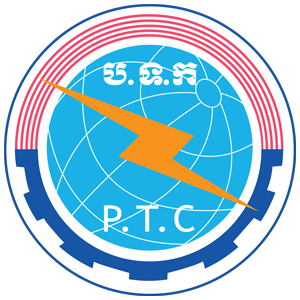Issue Description
As the digital economy continues to grow and access to telecommunications becomes a necessity, it is vital that consumers are given adequate protection to ensure they are free to choose the services that best match their individual needs. Likewise, as the types of service also expands, it is important that the Royal Government of Cambodia (RGC) takes steps to harness the growth of the sector through effective policies and regulations that seek to foster innovation and encourage fair competition between providers.
Presently in Cambodia, if a consumer is unhappy with the quality of service from their mobile provider and decide to switch to a new provider, they are required to give up their phone number and adopt a new one, this results in increased switching costs and hassle of informing others of the change to their contact details. Without the ability to transfer mobile numbers to different providers, some providers have been able to purchase licences for a wide range of phone numbers, including desirable and lucky combinations, at a low- cost following a number of carrier mergers, causing unfair competition against incumbent providers.
To overcome these issues, many countries have adopted mandatory mobile phone number portability regulations that allow consumers to retain their existing phone number when switching to a new provider, which has reduced costs while increasing competition and consumer satisfaction. Within ASEAN, Singapore, Malaysia and Thailand have already introduced mobile number portability for free and can be completed in less than three days, and providers in Vietnam began rolling out number portability from November 2018. Similarly, all ASEAN Member States have been encouraged to implement mobile number portability, following its inclusion in the Siem Reap Declaration of the ASEAN Telecommunications and Information Technology Ministers meeting held in December 2017.
Ensuring competition and consumer choice is equally important when it comes to the physical infrastructure for which communication flows through. As an internet connection has become an essential utility rather than a luxury, it is imperative that access to network infrastructure is provided on fair and reasonable terms as it plays a major role in shaping the field of competition. Although many individual users in Cambodia may be satisfied with mobile internet and may not even have a physical internet connection, businesses often have heavy bandwidth needs and demand higher speed connections than mobile internet can currently provide.
In Cambodia, when a new building is constructed, a telecommunication provider will make an agreement with the owner to connect the building to the broadband network and in return will be given full exclusivity to all consumers that reside within. This gives the provider a monopoly over the tenants and leaves the consumers with little recourse if they are unhappy with the quality of their service, and if this was to occur within an office building, it would severely inhibit commercial activities.
As there is little incentive for providers to grant access to their infrastructure to competitors, the sector requires the RGC to implement an effective broadband open access policy to allow the shared and fair use of network infrastructure. Implementing an open access policy would follow the example set by the RGC’s Universal Service Obligation Fund, that seeks to encourage the private sector to expand network infrastructure to areas that are less economically convincing, though greatly benefit the citizens that reside in such areas.
Impact on business
As in many countries, much of the focus of Cambodia’s telecommunication legislation has been on regulating the establishment of networks and licencing providers. However, as the sector continues to develop and more players enter the market, it is vital that policy follows suit to encourage fair competition and protect consumer choice. The increase in competition that stems from effective consumer orientated policies stimulates the private sector to innovate, improve service quality and price competitively. If businesses fail to do so, they ultimately risk losing their customers to the competitors that do, as customers become more empowered to make well-informed purchasing decisions.
The aims of implementing pro-competition policies like mobile number portability and open access for broadband infrastructure are to enhance consumers’ perception of telecommunication services in Cambodia by raising awareness of alternatives and simplifying the switching process. This will encourage greater investment into Cambodia’s ICT sector, and result in a stronger and more competitive market with improved network infrastructure.
Recommendation
- Implement mobile phone number portability and a broadband open access policy.
We respectfully recommend that the Ministry of Post and Telecommunications take steps to implement mobile phone number portability and a broadband open access policy to encourage greater consumer choice and fairer competition within the telecommunication sector. For mobile phone number portability, we suggest harmonising regulations with those implemented by other ASEAN members, as encouraged by the Siem Reap Declaration of the 2017 ASEAN Telecommunications and Information Technology Ministers meeting.
Recognising that implementing an open access policy for network infrastructure would be a lengthier and more technical process, we suggest that the Ministry seek best practice and engage in public-private consultations to ensure that such policy would effectively balance the needs of consumers, operators and owners, and encourage fair use of infrastructure.
Royal government of Cambodia
Initiative from Eurocham: The issue has been raised by the Digital & Technology Committee within The White Book edition 2024 in the Recommendation No. 24.

National Counterparts

Ministry of Posts and Telecommunications
Contributors


